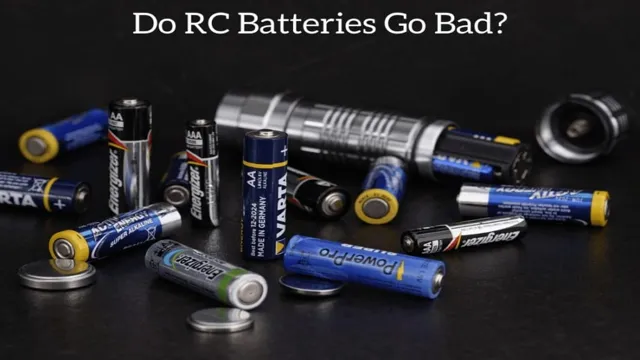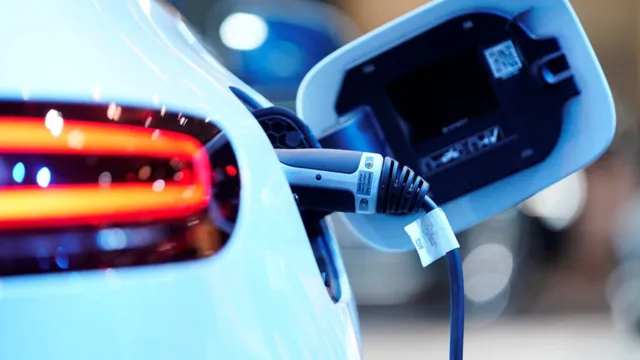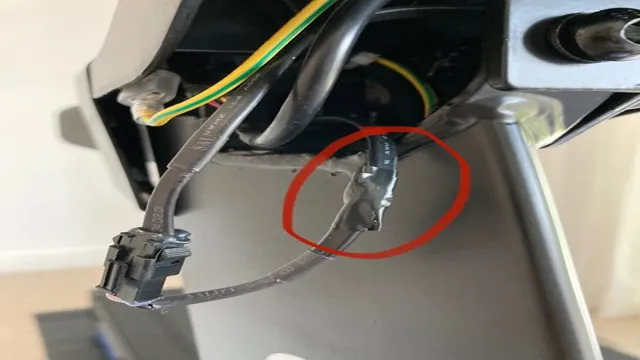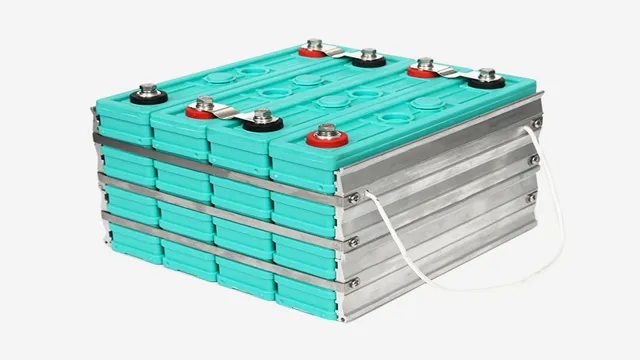Chilly Truths: The Inside Story of Electric Car Batteries Struggling in Cold Weather
Winter is here, and while many are enjoying the cold weather, electric car owners are facing a different hurdle. As the temperature drops, electric car batteries struggle to perform at their best, resulting in reduced range and overall functionality. But why do electric car batteries fail in the cold? Well, it all comes down to the chemistry of the battery.
Just like how a person’s body reacts differently in cold temperatures, the same goes for the chemical reactions within the battery. The drop in temperature causes the chemical reactions to slow down, resulting in reduced performance. But fear not, there are ways to combat this cold weather dilemma.
Keep reading to find out how.
The Science Behind it
Electric car batteries are known to go bad in cold temperatures, and this is because of the science behind how batteries work. When batteries are exposed to colder temperatures, the chemical reactions inside the battery slow down, which can lead to a decrease in performance and a shorter lifespan. Additionally, cold weather causes the battery to lose some of its charge, meaning that there is less energy available to power the car.
This is why it is important to keep your electric car battery warm, especially during the winter months. One way to do this is by storing your car in a garage or using a battery warmer to keep the battery at a consistent temperature. By taking these steps, you can help extend the life of your electric car battery and ensure that your car is always ready to go when you need it.
Battery Chemistry 101
Battery chemistry is a complex field that involves the interactions between different elements and compounds in order to generate electrical power. One of the most common battery chemistries is Lithium-Ion, which uses a combination of Lithium, Cobalt, Nickel, and Manganese to store and release energy. Essentially, Lithium-Ion batteries work by creating a flow of electrons between two electrodes, separated by a liquid electrolyte.
When the battery is charged, Lithium ions move from the cathode to the anode, creating a potential difference in voltage. This energy is then harnessed when the battery is discharging, allowing the Lithium to move back to the cathode. Other battery chemistries include Lead-Acid, Nickel-Cadmium, and Nickel Metal-Hydride, each with its own unique set of advantages and disadvantages.
Understanding battery chemistry is essential in order to optimize battery performance and improve the efficiency of devices that rely on them.

Effects of Low Temperatures on Chemical Reactions
Chemical reactions, low temperatures When it comes to chemical reactions, temperature plays a crucial role in determining the speed and extent of the reaction. Low temperatures can significantly impact chemical reactions by slowing them down or inhibiting them altogether. This is due to the fact that low temperatures cause molecules to move slower, reducing the kinetic energy required for chemical reactions to occur.
Additionally, low temperatures can lead to changes in the physical properties of reactants and products, such as increased viscosity or a decrease in solubility, that can further hinder chemical reactions. However, some chemical reactions may actually be facilitated by low temperatures, particularly those that involve thermally-sensitive molecules that can decompose at higher temperatures. Understanding the effects of low temperatures on chemical reactions is crucial in fields such as pharmaceuticals, where a deep understanding of temperature-dependent chemical reactions is necessary in order to design, develop and optimize new drugs.
So, How Cold is Too Cold?
Have you ever wondered how cold is too cold for your electric car battery? The truth is that cold temperatures can have a negative impact on your battery’s performance. When the temperature drops, the chemical reactions inside the battery slow down, which reduces its output power. In extreme cold weather conditions, the battery’s capacity can also drop, affecting your vehicle’s driving range.
Additionally, electric car batteries can go bad in cold weather if they are not properly cared for. This means you need to take extra measures to keep your battery warm, such as parking in a garage or using a battery warmer. So, if you live in an area with freezing temperatures, it’s important to consider the impact on your electric car battery and take the necessary steps to prevent any damage or reduction in performance.
Factors That Affect Electric Car Battery Performance in Cold
Electric car batteries are susceptible to temperature changes, especially in cold weather. But how cold is too cold for electric car batteries? Well, anything below freezing can negatively affect battery performance. There are several factors that contribute to battery performance in the cold.
Firstly, low temperatures can increase the internal resistance of the battery, causing a slower flow of electrons which ultimately reduces the battery’s range. Secondly, freezing temperatures can cause the battery to lose some of its charge, reducing its overall capacity. This decrease in capacity results in a shorter driving range and faster discharge times.
Additionally, cold weather has an impact on the regenerative braking system by reducing its effectiveness and reducing range. To counteract the negative effects of cold weather on electric car batteries, many EV owners opt to precondition their batteries before driving. This can be done through an app or connected to a charging station, ensuring the battery is warmed before use.
Proper battery management and maintenance in cold weather conditions are critical to ensure optimal performance and longevity of the battery.
Impact of Battery Size and Capacity on Cold Performance
The size and capacity of a battery can significantly impact its performance in cold temperatures. So, how cold is too cold for your battery to function optimally? The answer to this question depends on factors such as the type of battery, its age, and its capacity. Generally, most batteries perform well in temperatures above freezing, with some able to function in temperatures as low as -20°C.
However, as the temperature drops further, the battery’s capacity decreases, and it may not be able to provide the required power for various devices. Therefore, it is essential to consider the battery’s size and capacity when deciding on the environment in which it will be used. A larger battery with higher capacity is more likely to withstand colder temperatures than a smaller battery with a lower capacity.
In summary, the colder it gets, the bigger and higher capacity battery you would need, to ensure that your devices function correctly.
Real-world Temperature Testing
When it comes to real-world temperature testing, there are a few key factors to consider. The type of device being tested, the duration of the test, and the specific environmental conditions all play a role in determining the acceptable range of temperatures. So how cold is too cold? Well, it depends on the device.
For example, a smartphone may be able to handle colder temperatures than a laptop or camera. Generally speaking, most electronic devices are designed to operate within a range of 32-95°F (0-35°C). However, extreme temperatures outside of this range can cause damage to the internal components of the device and potentially render it unusable.
It’s important to note that temperature isn’t the only factor to consider – humidity, dust, and other environmental factors can also impact a device’s performance and lifespan. Ultimately, it’s best to consult the manufacturer’s guidelines for specific temperature recommendations and perform regular testing to ensure optimal performance.
Solutions and Workarounds
If you own an electric car and live in a cold climate, you may have wondered why your car’s battery decreases in capacity during the winter months. One of the main reasons for this is that electric car batteries are affected by cold temperatures. When the temperature drops, the chemical reactions that occur in the battery slow down, reducing its performance.
Fortunately, there are solutions and workarounds to help mitigate the effects of cold weather on your battery. One popular solution is to install a battery heater that works to keep the battery at a consistent temperature, even in very cold temperatures. Another option is to keep your car in a garage or covered area to help insulate it from the cold.
Additionally, preheating your car before driving can help warm up the battery and improve its performance. With these solutions and workarounds, you can keep your electric car battery in top condition, even during the coldest winter months.
Tips for Maintaining Battery Life in Cold Climates
Maintaining Battery Life in Cold Climates Cold weather can be harsh on batteries, especially for electronic devices like smartphones and laptops. If you live in a colder climate, you may have experienced battery life issues. However, there are solutions and workarounds to help maintain battery life in cold weather.
One option is to keep your devices in a warm place when not in use, such as inside pockets or gloves. This can help keep the battery warmer and prevent it from draining too quickly. Another solution is to invest in battery cases or portable chargers that can provide extra power when needed.
Additionally, lowering the screen brightness, turning off unnecessary apps or features, and disabling Wi-Fi or Bluetooth when not in use can also help extend battery life. By implementing these tips, you can enjoy longer-lasting batteries and prevent unexpected shutdowns during cold weather.
Winterizing Your Electric Car
Winterizing your electric car can be a bit tricky, as colder temperatures can reduce battery performance and lead to a shorter driving range. However, there are some solutions and workarounds that can help alleviate these issues. One option is to invest in a battery warmer, which can help keep the battery at a consistent temperature and prevent damage from freezing.
Another solution is to preheat your car before driving, either by using the car’s built-in heater or by using a smartphone app to activate the heating system from afar. Additionally, it’s important to keep your tires properly inflated and to avoid using cabin features like heated seats and climate control excessively, as these can drain the battery quickly. By taking these steps, you can help ensure that your electric car runs smoothly and efficiently throughout the winter months.
Closing Thoughts
As electric cars become more popular, it’s important to understand how changes in temperature can impact the performance of their batteries. Unfortunately, electric car batteries can go bad in cold weather. This is because the chemical reaction that powers the battery slows down as temperatures drop.
In extreme cold, the battery may even become damaged or unusable. That’s why it’s important for electric car owners to take special care when driving in cold weather. For example, warming up the battery before driving can help improve its performance.
Additionally, parking the car in a garage or other sheltered area can help to protect the battery from extreme temperatures. By taking these steps, electric car owners can help to extend the life of their batteries and ensure that their vehicles continue to perform well even in cold weather.
Conclusion
In conclusion, it’s safe to say that electric car batteries have a cold heart. When exposed to freezing temperatures, these batteries struggle to produce the necessary power and their lifespan is shortened. It’s like they need a hot cup of cocoa and a warm blanket, just like the rest of us! While advancements in technology can help improve their performance in cold weather, it’s important to remember that these batteries are literal powerhouses that need to be cared for and maintained properly in all conditions.
So, don’t let the cold get you down, take good care of your electric car battery and keep cruising on!
FAQs
How does cold weather affect electric car batteries?
Cold weather can reduce the performance of electric car batteries and cause them to lose their charge faster.
Is there a way to protect electric car batteries from the cold?
Yes, there are a few ways to protect electric car batteries from the cold. One way is to park the car in a garage or in a location that is out of the wind and exposed to sunlight. Another way is to use an electric car battery warmer.
Can cold weather damage electric car batteries permanently?
Yes, repeatedly exposing an electric car battery to cold temperatures can damage the battery permanently and reduce its overall lifespan.
What is the ideal temperature range for electric car batteries to operate in?
The ideal temperature range for electric car batteries to operate in is between 20°C and 30°C. If the temperature falls too low or rises too high, the battery may experience reduced performance and lifespan.





